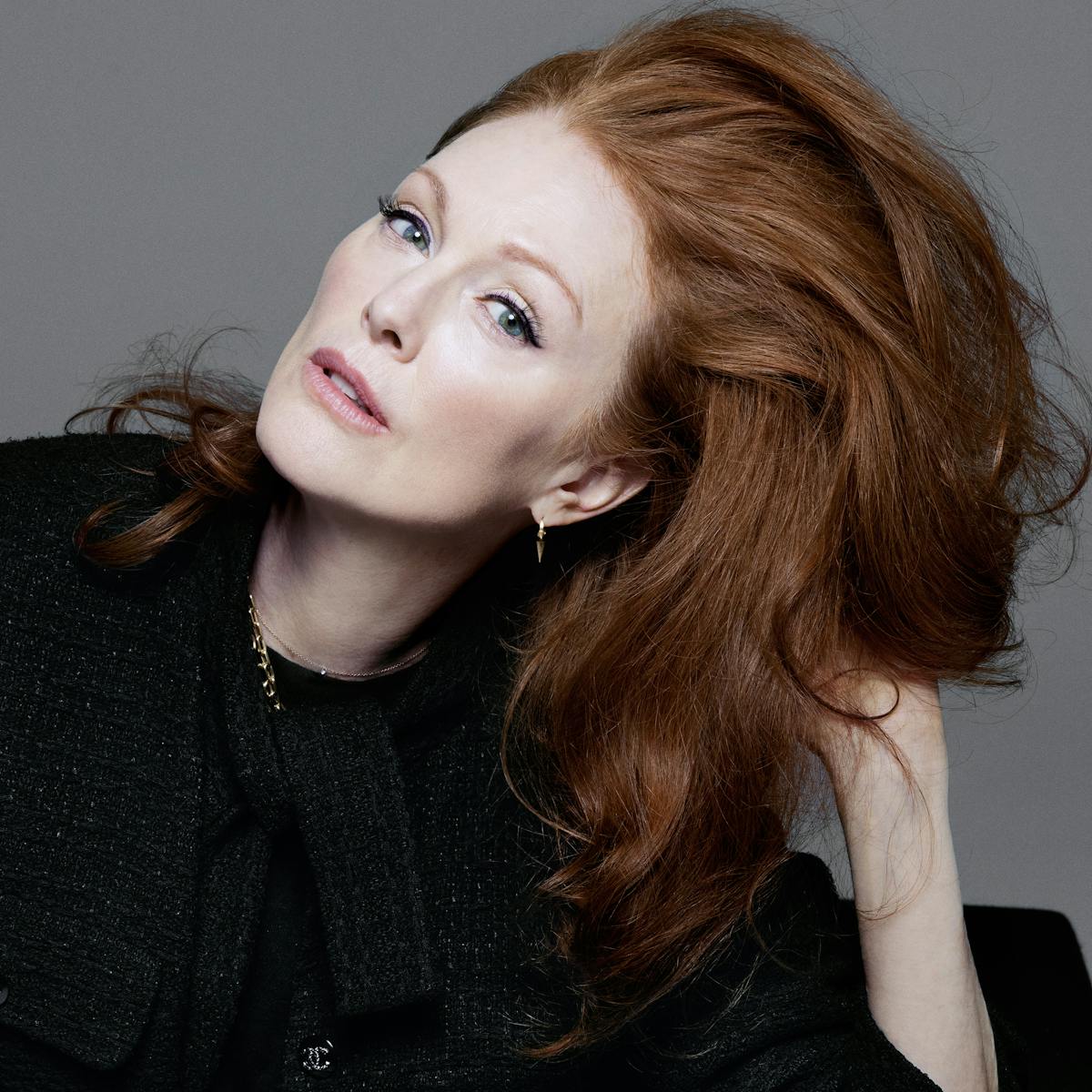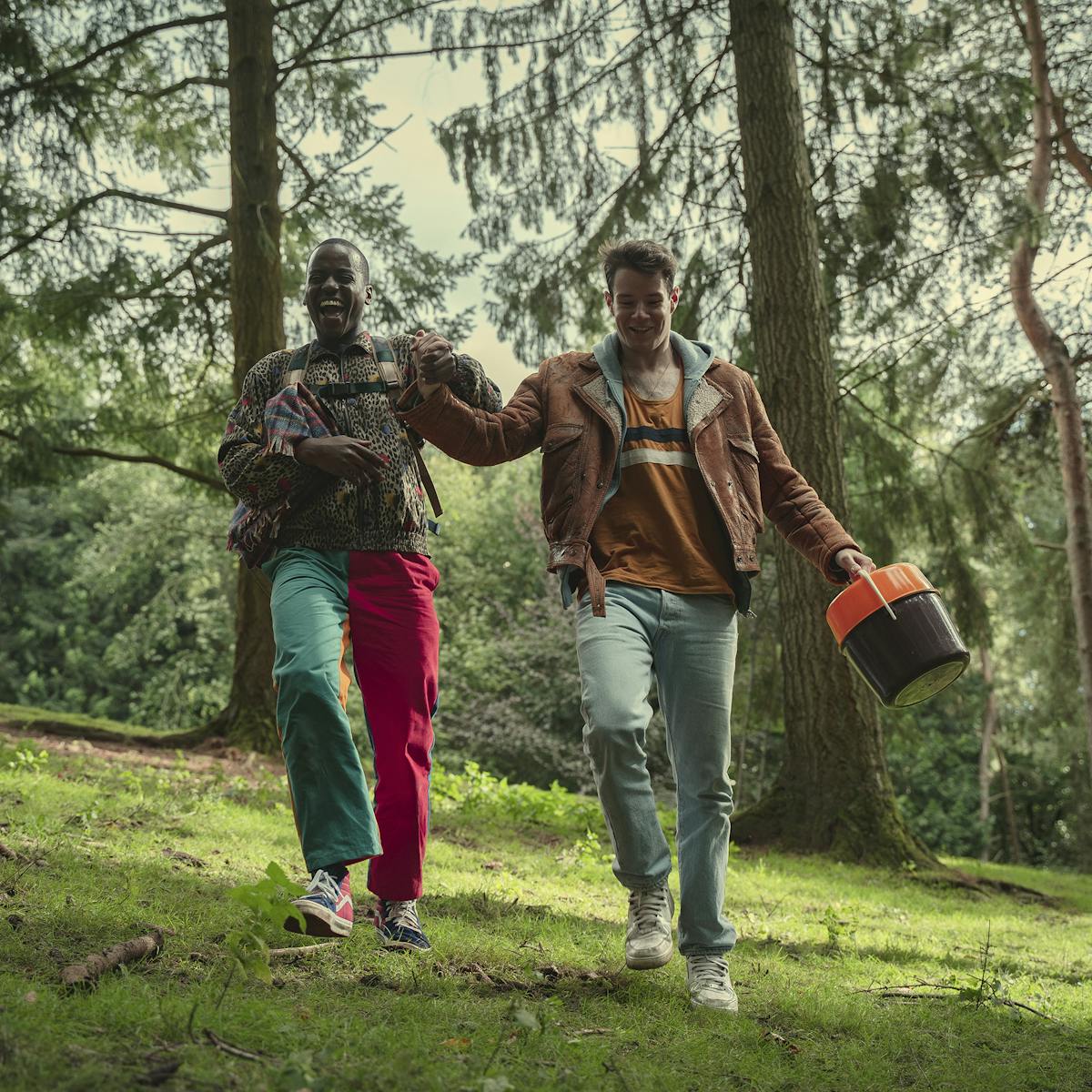Six dads bond over being parents of and advocates for transgender youth during a fishing trip in Oklahoma.
They introduce themselves one by one, holding up photos of their kids for the camera. The subjects of The Dads, a short film directed by Luchina Fisher and executive-produced by Dwyane Wade and Jon Marcus, hail from different backgrounds, hometowns, and generations. But the thread that connects them becomes clear through their candid and moving conversations on a fishing trip in the Oklahoma wilderness.
“We love our children, and we’re willing to put everything on the line for other people’s children as well,” says Jose Trujillo, who serves, alongside several of the other fathers, on the Human Rights Campaign’s (HRC) Parents for Transgender Equality Council. The process of educating themselves, accepting their kids, and becoming outspoken advocates for transgender youth took the kind of community and mutual support that the film so poignantly showcases.
“These are not your typical dads in some ways, but in other ways they are — and that’s the point,” Fisher says. The director became acquainted with the film’s subjects through her own involvement with HRC — when she heard a few of the men discussing a weekend away, she floated the idea of making a film and assembled a diverse group of six: Stephen Chukumba, Frank Gonzales, Trujillo, Peter Betz, Wayne Maines, and Dennis Shepard. The director had previously released the feature-length documentary Mama Gloria (2020), celebrating the life of Chicago trans woman and local matriarch Gloria Allen, and her pivot to focus on fathers in the movement felt like a natural next step.
“Dads sometimes need to have these conversations separate and apart from their children and families,” Fisher says. In The Dads, which premiered earlier this year at SXSW, the men cast lines into the water, share a home-cooked meal, and roast marshmallows over a campfire while discussing the struggles they’ve faced, both within themselves and with the outside world, as they have evolved to become supportive fathers to their trans kids.

The dads during a fishing expedition
“When a child transitions, the whole family transitions,” Fisher says. “Each person in the family goes through their own process, which is often a very lonely one.” That can be especially true for fathers, as they contend with social expectations around what it means to be a man and a parent. Some of the men in the film talk about blaming themselves for not being masculine enough or for failing as fathers when their kids first came out. “All the fears that they have — not just about what this means for themselves and their family, but how the world is going to accept their kid — can really get in the way of love,” says the director.
And it’s fear that’s fueling escalating attacks on the existence and rights of trans people all around the country. The persistence of anti-trans violence — with a record 50 reported fatalities in 2021, according to the HRC — and a recent flood of anti-trans legislation that would infringe on communities’ civil liberties have raised the urgency of engaging in transformative dialogue to a fever pitch. “We need cisgender, heterosexual male voices to counter the hatred and anti-trans rhetoric that is coming from that same demographic,” Fisher says. “There are many dads out there who are speaking out in support of their trans kids, and their voices aren’t being spotlighted as much. We need to hear from them in this really critical moment.”
One venerable voice in the film links today’s efforts to protect L.G.B.T.Q.I.A.+ youth to a tragic, not-so-distant past. “They’re fighting the same battle right now, only it’s worse,” says Shepard, whose gay son Matthew was murdered in 1998, at the age of 21, in a brutal hate crime that brought to national attention the consequences of violent homophobia. After Matthew’s murder, Dennis and Judy Shepard became fierce advocates for legislation, finally passed in 2009, that classifies targeted violence against L.G.B.T.Q.I.A.+ people as hate crimes.
“Dennis is such a huge hero to me,” Fisher says of including Shepard in The Dads. “He and Judy didn’t hide. They claimed that space and said, ‘No more. We’re going to get educated and we’re going to educate others.’” In the film, Shepard appears as a sort of quiet role model, hanging back as the other fathers air their own experiences.

Jose Trujillo, Wayne Maines, and Dennis Shepard
“There’s almost this passing of the baton,” Fisher says, from Shepard to Chukumba, another dad in the film who reflects on the layered threats facing his son Hobbes, a Black trans man. “Stephen is the next generation of father we need to hear from because we know that right now the violence is most affecting Black and brown trans and queer folks,” Fisher says.
Chukumba emphasizes the value of like-minded allies coming together and leaning on one another for support. “Finding you all saved my life,” he says. “The reality is that we cannot survive in isolation.” The simple act of coming together and communicating about their common ground proves to be extremely powerful.
“It was really important for them to be able to gather and be vulnerable with each other about their darkest moments, but also the joy they found in accepting and loving their children,” Fisher says. The director hopes The Dads will spark more exchanges like these.
“I’ve had so many young people come up to me and say, ‘I can’t wait for this to be on Netflix because my dad needs to see this,’” Fisher says. “Maybe the film can break through to them in a way that their own children haven’t been able to.”




